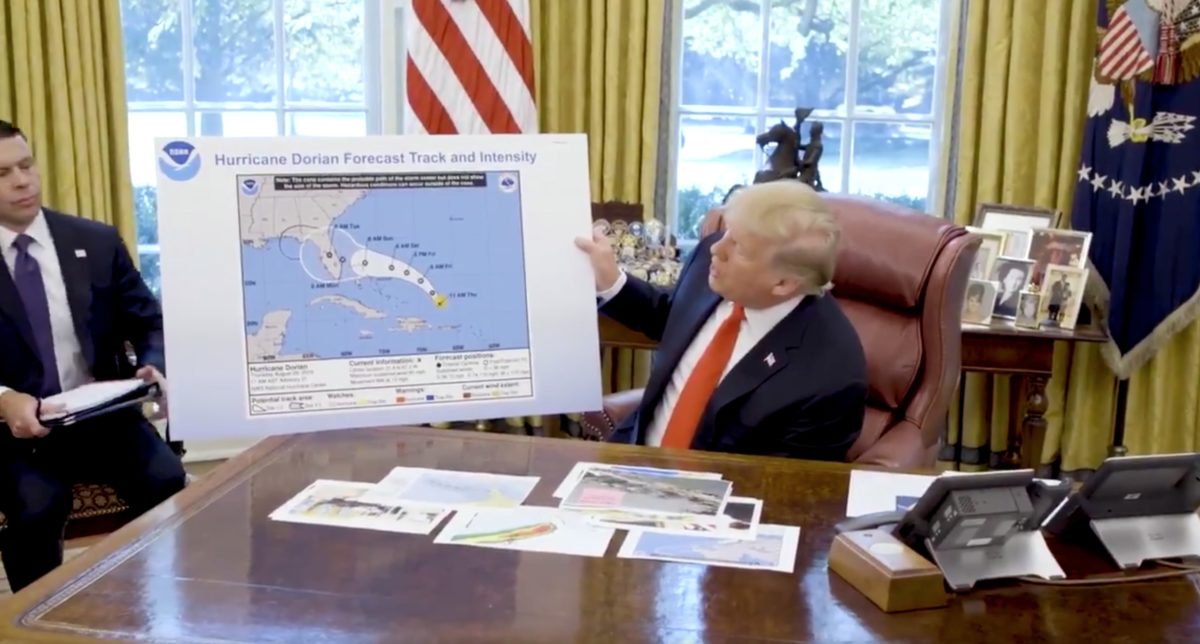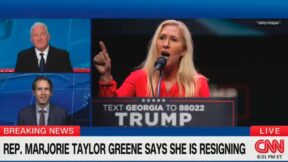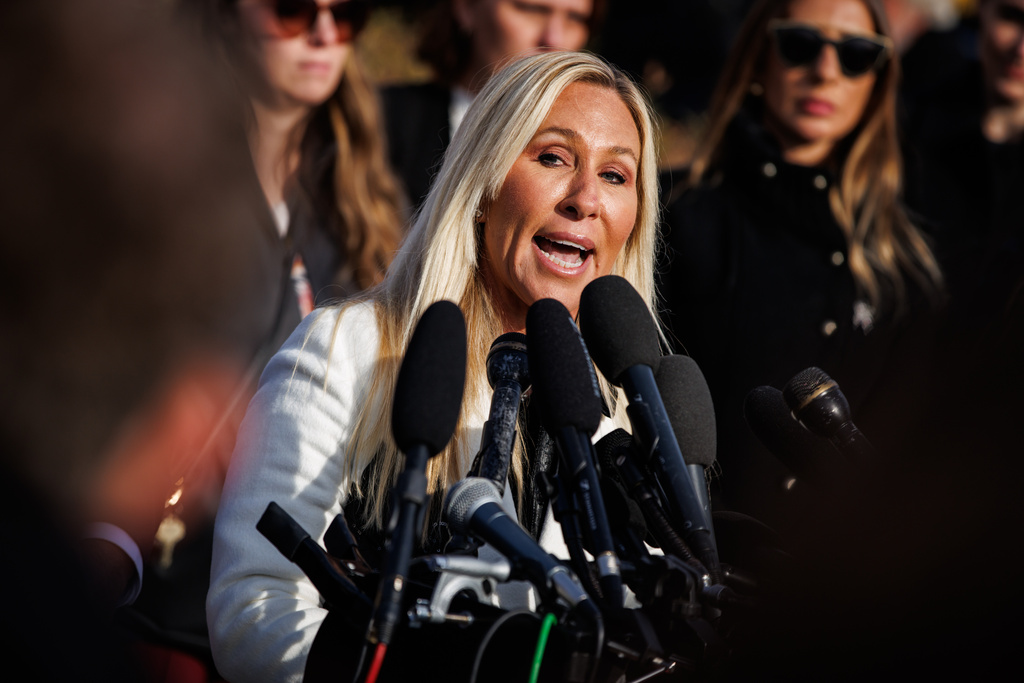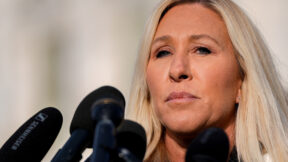Top NOAA Official Reportedly Investigating Agency’s Statement Backing Trump on Alabama: ‘Not Based on Science’

The acting chief scientist at the National Oceanic and Atmospheric Administration is reportedly looking into the agency’s response backing up President Donald Trump‘s Alabama tweet and disavowing the statement from the Birmingham National Weather Service.
To recap: after Trump’s September 1st tweet saying Hurricane Dorian could hit Alabama, the Birmingham NWS tweeted in response Alabama won’t feel any impact:
Alabama will NOT see any impacts from #Dorian. We repeat, no impacts from Hurricane #Dorian will be felt across Alabama. The system will remain too far east. #alwx
— NWS Birmingham (@NWSBirmingham) September 1, 2019
A few days went by, the government continued hurricane prep, “Sharpie-gate” happened, and then — five days after the Birmingham NWS tweet — NOAA put out a statement disavowing them and backing up the president:
From Wednesday, August 28, through Monday, September 2, the information provided by NOAA and the National Hurricane Center to President Trump and the wider public demonstrated that tropical-storm-force winds from Hurricane Dorian could impact Alabama. This is clearly demonstrated in Hurricane Advisories #15 through #41, which can be viewed at the following link.
The Birmingham National Weather Service’s Sunday morning tweet spoke in absolute terms that were inconsistent with probabilities from the best forecast products available at the time.
Craig McLean, the acting chief scientist at NOAA, apparently wasn’t happy with that statement. The Washington Post obtained an email he sent saying he plans to investigate:
“The NWS Forecaster(s) corrected any public misunderstanding in an expert and timely way, as they should,” McLean wrote. “There followed, last Friday, an unsigned news release from ‘NOAA’ that inappropriately and incorrectly contradicted the NWS forecaster. My understanding is that this intervention to contradict the forecaster was not based on science but on external factors including reputation and appearance, or simply put, political.”
He also wrote that “the content of this news release is very concerning as it compromises the ability of NOAA to convey life-saving information necessary to avoid substantial and specific danger to public health and safety.”
“If the public cannot trust our information, or we debase our forecaster’s warnings and products, that specific danger arises,” McLean wrote.
He’s looking into whether the statement violated the NOAA administrative order dealing with scientific integrity.
Separately, the head of the National Weather Service today publicly defended the Birmingham NWS for their commitment to public safety.




